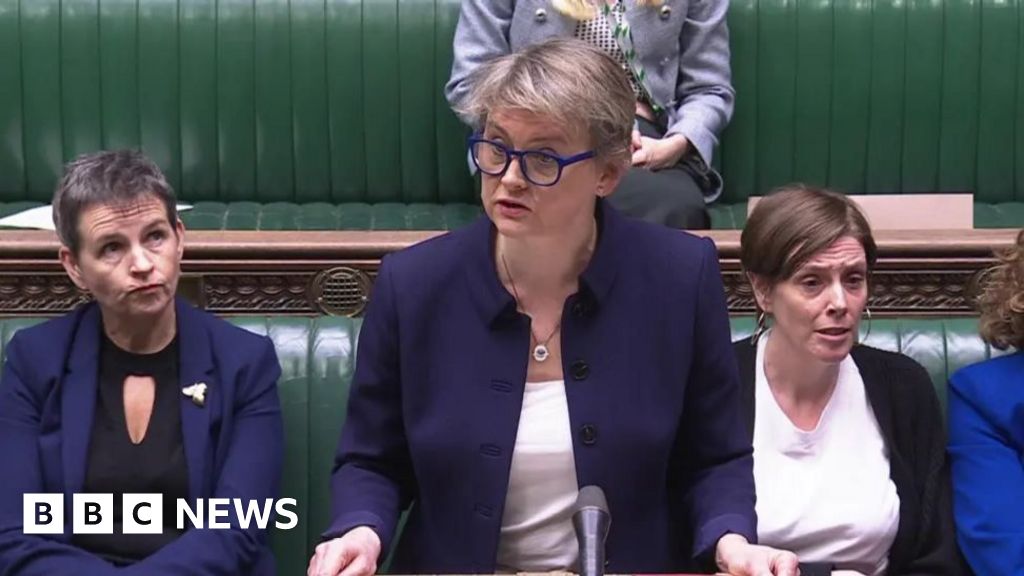ARTICLE AD BOX
Image source, Getty Images
Image caption, Gas prices are at record highsBusiness Secretary Kwasi Kwarteng has defended the government's handling of the energy crisis after suppliers said the system of having a cap on prices was not fit for purpose.
Gas prices are at record highs, with some domestic energy supply firms failing as they pay more for gas than they are able to charge.
Mr Kwarteng did not say how pressure on businesses might be eased but said keeping the cap was "non-negotiable".
The cap is reviewed every six months.
It sets the maximum level a supplier can charge a consumer on a standard tariff in England, Wales and Scotland.
But energy regulator Ofgem has warned households will see further "significant rises" in the spring, when the cap is reviewed.
Writing in the Sunday Express, Mr Kwarteng talked about "the safety net that we have in place to shield consumers from instant price hikes this Christmas, and ensure everyone gets the supply they need".
He said his priority was protecting consumers.
"Despite some pushing me to lift the cap, I am absolutely clear it is here to stay and will remain at the same level throughout winter," he wrote.
"Keeping this protection in place is non-negotiable for me."
Some suppliers say the cap is just delaying an inevitable increase in prices and should be reviewed more regularly than once every six months.
Wholesale gas prices have risen 250% since January.
Mr Kwarteng met leaders from heavy industry on Friday, amid warnings that some industrial sectors could have to shut down operations. But they failed to find any solutions to supply problems and price rises.
Last month, nine domestic energy supply companies went out of business, forcing 1.7 million customers to move to new suppliers and on to higher rates.
Paul Richards, chief executive of Together Energy, which he said is currently making losses, said while he supported a price cap to protect customers, the current mechanism "is not fit for industry, nor is it fit for customers".
He said it protected customers in the short term but somewhere between £1bn and £3bn in costs would be spread back across business and households as a result of suppliers going bust.
Derek Lickorish, chairman of Utilita Energy, which has more than 800,000 customers, said there was no doubt consumers would end up paying for failed firms.
The government said it was in regular contact with business groups to explore ways to manage the impact of global prices.
A number of Conservative MPs have called for the government to act, and the Energy Intensive Users Group - which represents firms that use a lot of energy - said measures were needed "right now" to stop shut downs having a wider impact.
UK Steel boss Gareth Stace said he was "baffled" that the UK government had failed to find solutions. He said governments in the rest of Europe had stepped in to support industry - although they faced lower energy costs than in the UK.
Mr Kwarteng's message came as the government also extended a fast-track scheme to allow more people to be trained as HGV drivers to address a shortage of people there.

 3 years ago
48
3 years ago
48








 English (US) ·
English (US) ·